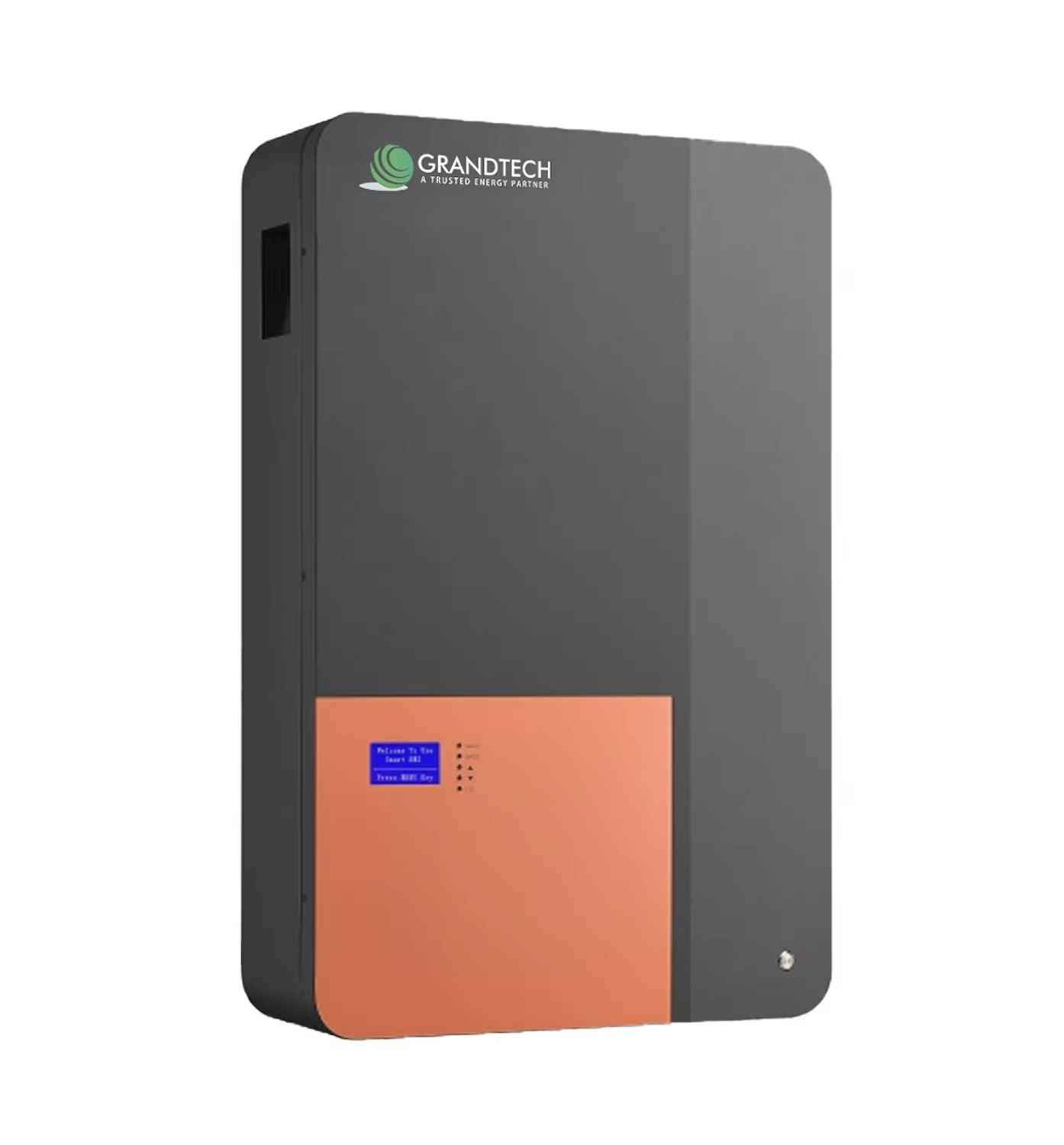How to Choose the Right Lithium Battery for Your Solar System

Looking for the perfect lithium battery for your solar power system? Don’t worry! Fortunately, you will not struggle to find one that benefits you. GRANDTECH is always here to guide you about lithium batteries and their applications in solar energy systems. In simple terms, this is the guide that will explain to you about everything.
What is a Lithium Battery
A lithium battery is a specific rechargeable battery that you can charge-recharge to use it multiple times. It stores electricity, the energy that powers everything. Solar energy is one of the most popular forms of energy because this is a natural source able to save money from electricity bills. It harnesses energy from the sun, meaning it is a renewable energy source. Due to their high energy density, lithium batteries are extremely beneficial as they provide an effective solution to storing energy from solar panels. So you can store lots of energy, without needing a big battery. And, lithium batteries can be recharge several times before they become useless, which saves money for you and is good for our environment.
How to Choose a Lithium Battery
Choosing the correct Energy Storage Lithium Battery for your solar system isn't entirely straightforward, however, it is essential. There are a few key considerations you need to keep in mind to choose the right battery for your application:
Capacity: It indicates the total energy the battery can store. Higher capacity means more energy storage which is preferred for your solar system.
Voltage: Refers to the potential difference between the two terminals of the battery. This is critical to ensure the battery is compatible with file your solar panels.
Discharge Rate: This indicates how quickly the battery can release its energy. The faster the discharge rate is, the more efficient you use energy when needed.
Temperature Range: Such is the range of temperature that the battery can function in. This is an important aspect to be familiar with as temperatures, both high and low, can influence batteries.
Warranty mileage: This is the company's guarantee of how far the battery will be good for. A good battery will often come with a longer warranty.
Battrey size as required for power use
One key factor in mastering how to choose a 12v lithium battery for a solar system is to size your required usable energy buffering appropriately. Your solar panels can deliver a certain amount of energy, and the battery should be able to store it all. So it can store energy when the sun is shiningbrightest. You want the battery so that it will be able to capture that energy generated during the sunnier parts of the day. The battery must also have the same voltage as your solar panels. This allows the battery to charge and operate effectively, allowing you to reap the benefits of solar power.
Types of Lithium Batteries
What kind of lithium batteries exist for solar energy. Each has its own benefits. Here are some of the most common types you might want to consider:
Lithium Iron Phosphate (LiFePO4): These are the most common batteries used they are safe and long lasting. They can be fully discharged without being damaged, so all the energy they store can be used.
NMC (Lithium Nickel Manganese Cobalt) : Another excellent battery known for its high energy density and lighter weight. That means, it can easily be installed and used with various solar systems.
Lithium Titanate Oxide (LTO) – These batteries offer extremely fast charge/discharge rates. They can be sealed away to store energy, and are released for use whenever required at very high efficiency.
Maintenance of Your Lithium Batteries
To prolong the lifespan and functionality of your solar lithium batteries, here are some useful tips you can try:
Do Not Use Until Fully Charged: One of the most important things you want to do is charge your batteries before using them the first time. So it helps the battery to calibrate and charge up properly.
Overcharging is harmful: Do not overcharge your batteries. Utilisecharge controller to avoid overloading It prevents the battery from being overcharged.
Maintain a Consistent Temperature: Ensure your batteries are kept at a consistent temperature. Not subjecting them to high or low temperatures. Batteries tend to operate optimally in moderate temperatures.
Never forget to keep your batteries in a safe and dry area. This ensures that they won't get accidentally ruined.
Bottom line, the right lithium ion solar battery will make a world of difference between clean, reliable, and restorative energy, versus cumbersome storage and endless maintenance. When you choose heart you should keep in mind capacity, voltage, and discharge rate. There are various types of lithium batteries, each with their own advantages (some examples include LiFePO4, NMC, and LTO). By adhering to maintenance recommendations such as charging fully before using, refraining from overcharging and safely storing the unit, the batteries can provide you years of effective service. We hope this guide by GRANDTECH has provided some insight as to what you might need to know about lithium batteries and solar energy, as well as tips for how to select the best battery for your solar system.
Comments
Post a Comment